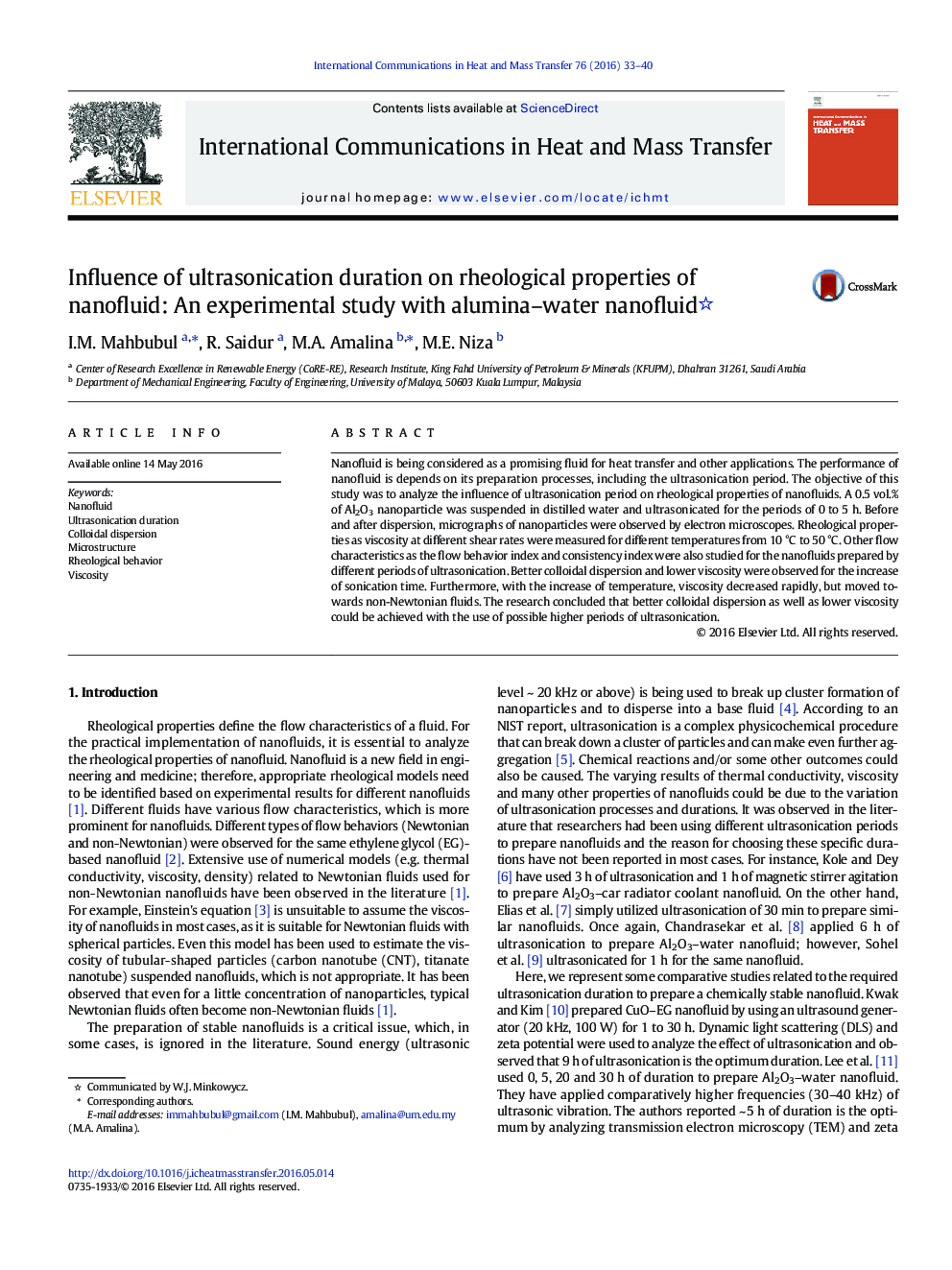| Article ID | Journal | Published Year | Pages | File Type |
|---|---|---|---|---|
| 652839 | International Communications in Heat and Mass Transfer | 2016 | 8 Pages |
Nanofluid is being considered as a promising fluid for heat transfer and other applications. The performance of nanofluid is depends on its preparation processes, including the ultrasonication period. The objective of this study was to analyze the influence of ultrasonication period on rheological properties of nanofluids. A 0.5 vol.% of Al2O3 nanoparticle was suspended in distilled water and ultrasonicated for the periods of 0 to 5 h. Before and after dispersion, micrographs of nanoparticles were observed by electron microscopes. Rheological properties as viscosity at different shear rates were measured for different temperatures from 10 °С to 50 °С. Other flow characteristics as the flow behavior index and consistency index were also studied for the nanofluids prepared by different periods of ultrasonication. Better colloidal dispersion and lower viscosity were observed for the increase of sonication time. Furthermore, with the increase of temperature, viscosity decreased rapidly, but moved towards non-Newtonian fluids. The research concluded that better colloidal dispersion as well as lower viscosity could be achieved with the use of possible higher periods of ultrasonication.
